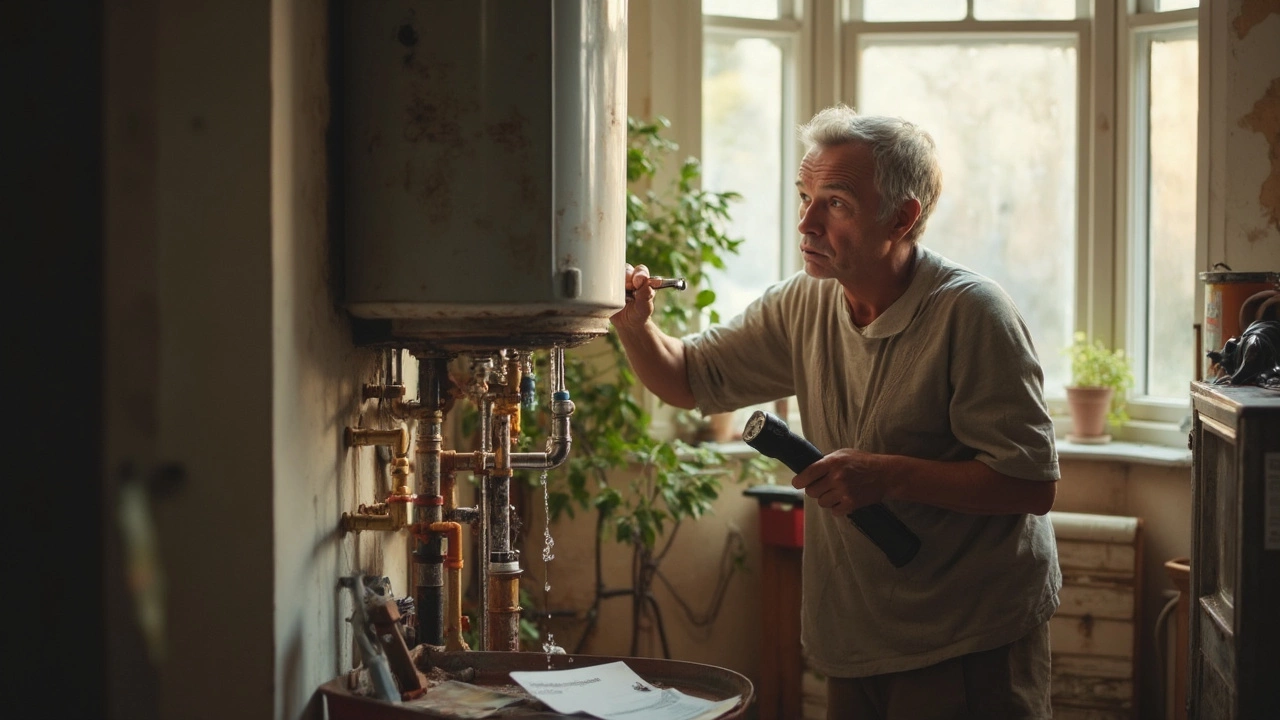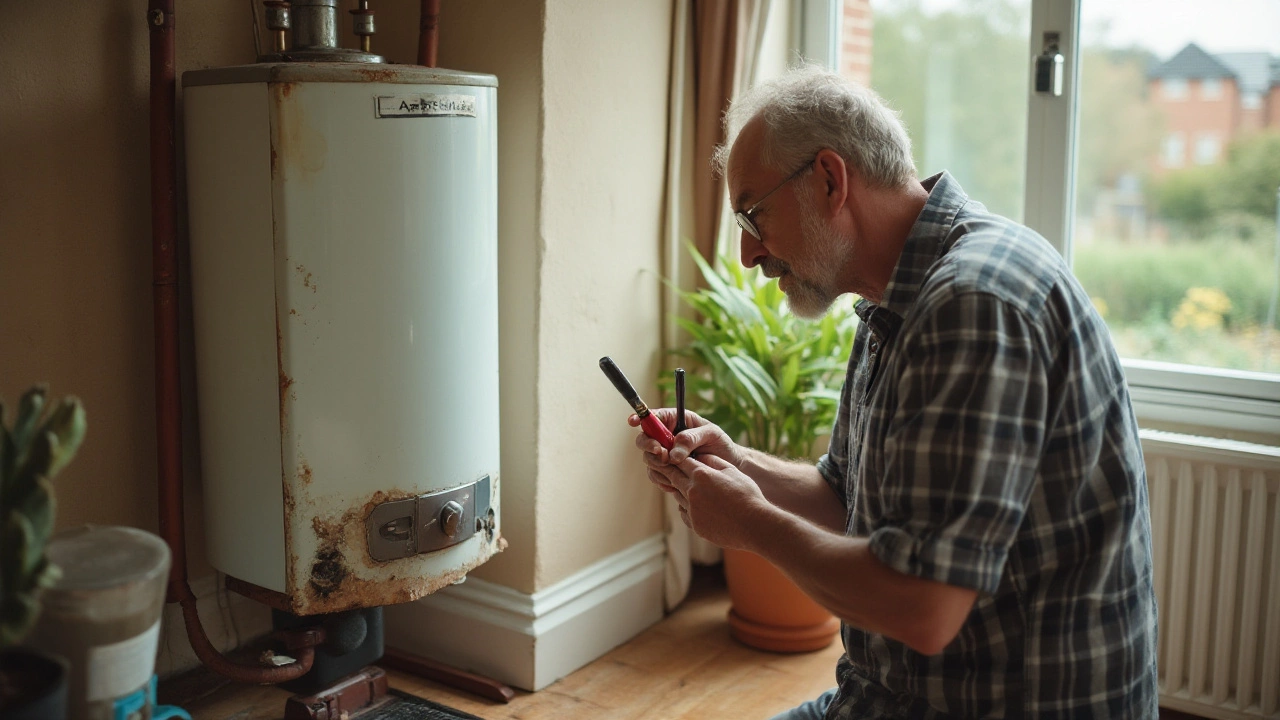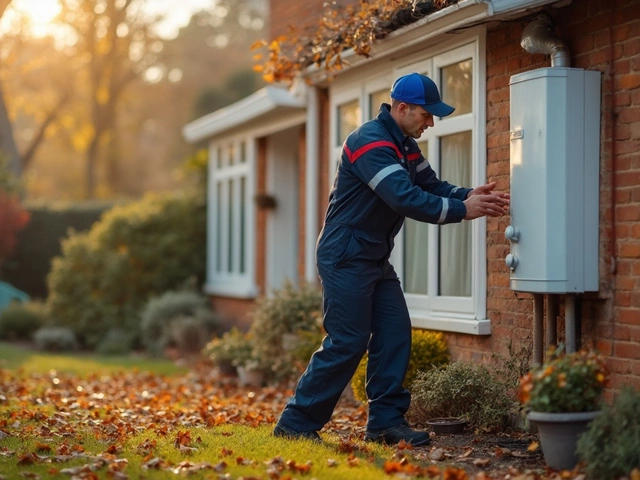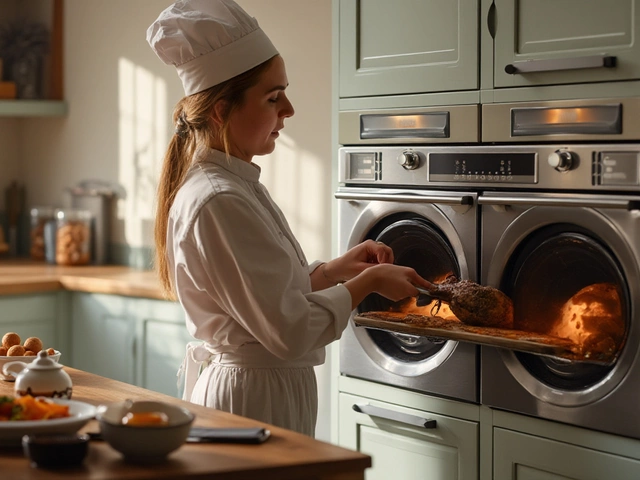Keeping your kitchen, laundry and heating gear in top shape saves money and stops those annoying breakdowns. Below are the everyday actions that keep washers, ovens, heat pumps, boilers and more humming without a call to a technician.
Start with the easy stuff you can do while you’re already in the room. For a fridge, clear out old food and wipe the door seals – a clean seal stops cold air from leaking. On a washing machine, leave the door open after each load and run a monthly empty wash with a cup of vinegar to clear limescale. Electric ovens and hobs benefit from a quick surface clean after each use; a baked‑on spill can overheat elements and shorten their life.
Heat pumps and boiler rooms need a glance every week. Make sure the outdoor unit of a heat pump is free of leaves and debris; a blocked fan can make the system work harder and wear out faster. For a boiler, listen for strange noises and check the pressure gauge – low pressure is a sign of a leak that needs fixing before a bigger issue.
When the seasons change, give each appliance a deeper once‑over. Replace the extractor fan filter in the kitchen and bathroom at least once a year; a clogged fan reduces airflow and can cause motor burnout. If you’ve got an electric stovetop, inspect each burner for cracked or burnt out elements – swapping a faulty element yourself is often cheaper than a service call.
Heat pumps deserve a spring check‑up. Clean the indoor coil, test the thermostat settings, and make sure the refrigerant lines aren’t kinked. In colder months, monitor the outdoor temperature; once the heat pump hits its low‑temperature limit, you may need supplemental heat to avoid over‑working the unit.
Water heaters also need a flush every 12‑18 months. Sediment buildup lowers efficiency and can cause the heater to overheat. Shut off power or gas, attach a garden hose to the drain valve, and let fresh water run through until it’s clear. While you’re at it, test the temperature‑pressure relief valve – it should discharge a stream of water when lifted.
Boiler owners should schedule an annual service with a Gas Safe engineer. A professional will inspect the heat exchanger, test the combustion, and clean any soot. Knowing the cost of a boiler service in 2025 helps you budget and avoid surprise bills later.
When you spot a problem, decide quickly if it’s a DIY fix or a job for a pro. Replacing a broken oven element, fixing a non‑heating electric hob, or swapping a dishwasher pump are tasks many homeowners can handle with basic tools. However, if you’re dealing with gas‑related issues, a leaking boiler or a heat pump that won’t blow warm air, it’s safer to call an expert.
Finally, keep a simple log of each appliance’s age, maintenance dates, and any repairs. Knowing that a washing machine typically lasts 8‑12 years or that a water heater can survive 30 years with proper care helps you plan replacements before a sudden breakdown hits.
Stick to these tips, and you’ll extend the life of everything from your fridge to your heat pump. Less downtime, lower bills, and a home that runs smoothly – that’s the real payoff of good maintenance.

Wondering if your hot water heater is about to quit? This article breaks down the most common signs that your water heater needs to be replaced, from strange noises to rusty water. Find out how long these tanks usually last, what to look for during regular maintenance, and how to handle sudden issues. You'll get practical tips to keep your heater running smoothly and avoid a cold shower surprise. If you've ever worried about flooding, energy bills, or weird knocking, this is for you.

Discover the essential roles appliances play in our daily lives and learn effective tips for maintaining their efficiency. From refrigerators to washing machines, each appliance features unique mechanics tailored for specific tasks. Grasping these functions is crucial for efficient servicing and longevity. Uncover surprising facts about how appliances work and ground yourself in practical maintenance advice to keep them running smoothly.

Water heaters are essential in our daily lives, yet they often fail more quickly than expected. Understanding the common causes of these failures can help in preventing them. In this article, we delve into why water heaters often break down prematurely and offer practical tips on extending their lifespan. Regular maintenance and awareness of common issues are key to ensuring your water heater runs efficiently for years.

Replacing a boiler can seem like a daunting task, but knowing what to expect can make the process easier. Typically, boiler replacement involves several steps including removing the old unit, choosing the right size and type for your home, and ensuring proper installation. Skilled professionals often make the experience smoother by handling the technical aspects and minimizing disruption. Preparation and understanding of the process can help homeowners tackle this job with confidence.

Is fixing a 4-year-old dishwasher actually worth it? Get honest advice, money-saving tips, and clear facts for making the smartest call.

Searching for a trusty electric oven can make a big difference in your cooking experience and lessen repair issues. This article uncovers the top-performing brands known for reliable electric ovens, sharing insights on what makes these brands stand out. From innovative features to energy efficiency, you'll learn tips on choosing the right oven and maintaining it for long-lasting use. Whether you're shopping for a new appliance or fixing an old one, this guide shines a light on the best options available today.

If your electric oven suddenly stops working, don't panic. This article explores common issues with electric ovens and provides practical tips for troubleshooting and repair. From understanding how different components work to knowing when it's time to call a professional, you'll find the go-to advice you need to get your oven back in working order. Avoid the hassle of guesswork and get straightforward guidance on keeping your kitchen running smoothly. Practical insights on oven maintenance await you.

Thinking about how long your boiler will keep working? This article explains the real lifespan of boilers, the factors that affect how long they last, and how to spot when yours might be on its last legs. You'll get practical tips for stretching out your boiler's life and advice about when it's smarter to repair or just replace. Stay warm and avoid surprise breakdowns with these straightforward facts.